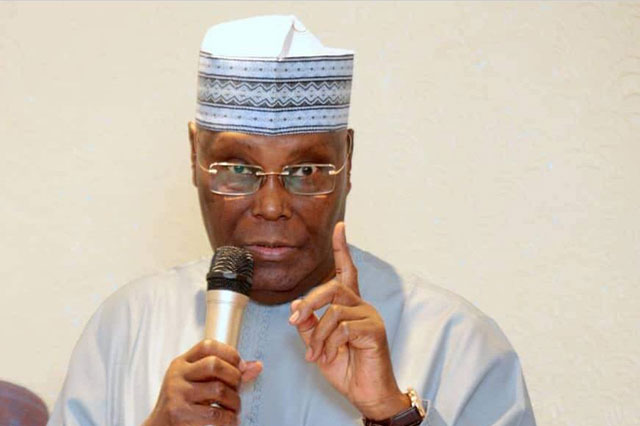Abuja – Former Nigerian vice president and perennial presidential candidate Atiku Abubakar on Wednesday announced he will run again in the 2023 election to replace President Muhammadu Buhari.
The race for the presidency of Africa’s most populous country and largest economy is still wide open though several high-profile figures have already stepped forward.
Abubakar, 75, lost against Buhari in 2019 on the opposition Peoples Democratic Party ticket and the 2023 race will be his sixth attempt to capture Nigeria’s presidency.
“Presently Nigeria is a sinking ship, it must be rescued urgently. That is why I am happy to announce my candidacy for the President of the Federal Republic of Nigeria,” Abubakar told a press conference in Abuja.
Abubakar said he would focus on security, economy, education and devolving more resources and powers under the federal system.
His Excellency Alhaji Atiku Abubakar Declaration was totally successful. Let’s do the needful to get it right this time. #AtikuDeclaration #AtikuDeclares2023 pic.twitter.com/sGSRjEjfa1
— Franklin Iriemivbo (@Worldfranko) March 24, 2022
Security will be a key issue with Nigeria’s armed forces battling a jihadist insurgency in the northeast, criminal gangs who loot villages and kidnap in the northwest and simmering separatist tensions in the southeast.
High cost of living, a new spate of power shortages and soaring diesel prices are also battering Nigeria’s economy in a country that produces the most crude oil on the continent but has to import most of its fuel needs.
No clear candidate has emerged for the February 2023 election so far though some well-known politicians such as former Lagos mayor and ruling party strongman Bola Tinubu have already announced they will run.
On Saturday, Buhari’s All Progressives Congress or APC party will hold its national convention to chose a new chairman among other posts, in one of the last stages before holding primaries for their presidential candidate.
Much of the jockeying within the APC has been among internal factions over whether the candidate should be from the north or the south.
ALSO READ | Nigeria sets new date for 2023 elections
Under an unofficial deal among the political elites, Nigeria’s presidency is expected to “rotate” between north and south, in a form of power-sharing bid to balance the mostly Muslim north and the predominantly Christian south.
That accord is meant to ease intercommunity tensions that often flare in a country with more than 250 ethnic groups.
After two terms under Buhari, a Muslim from the north, many southerners say the presidency should rotate back to their region.
Abubakar rose from humble beginnings as a Muslim in northern Nigeria to become the head of the customs service during the era of military rule, a position that critics believe brought him enormous wealth.
When democratic rule returned to Nigeria in 1999, Abubakar became vice-president to president Olusegun Obasanjo for the Peoples Democratic Party (PDP).
But his official, political and family life has been dogged by controversies ranging from the number of his wives to allegations of corruption.
Abubakar last ran against Buhari in 2019 when he lost and the former army commander was reelected to his second term. Abubakar filed a challenge in the Supreme Court, but judges dismissed the case.
Follow African Insider on Facebook, Twitter and Instagram
Source: AFP
Picture: Twitter/@Imudia_se2
For more African news, visit Africaninsider.com


